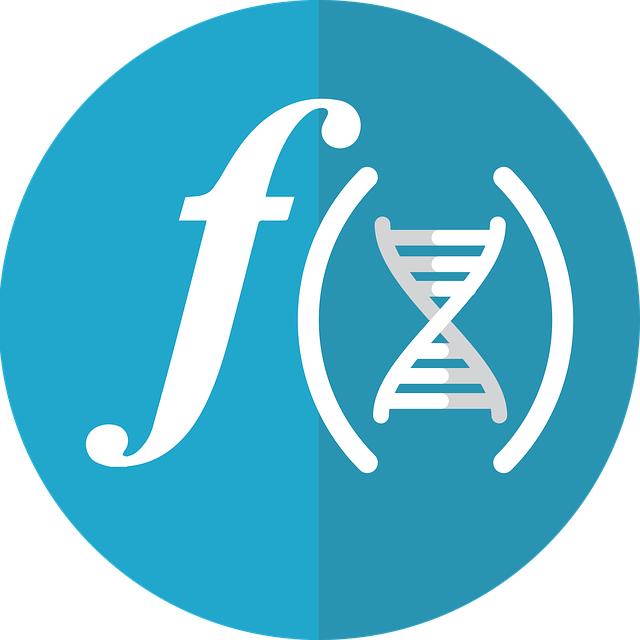- Introduction
- What is MD5?
- Importance of MD5 Hashing
- Using an Online MD5 Hash Generator
- Best MD5 Hash Generator Tools
- Conclusion
- FAQs
Introduction
In today's digital age, data security is more crucial than ever. From personal information to sensitive business data, ensuring that your information remains confidential is a top priority. One effective way to safeguard your data is by using hashing techniques, particularly the MD5 hash function. This article explores various facets of MD5 hashing, including its definition, importance, how to utilize online MD5 hash generators, and the best tools available. By understanding these aspects, you can enhance your data protection strategies.
What is MD5?
MD5, which stands for Message-Digest Algorithm 5, is a widely used cryptographic hash function. It generates a 128-bit hash value from input data, which means that regardless of the size of the data, the output will always be a fixed length. MD5 is primarily known for creating hashes that can easily identify data inconsistencies. It was designed by Ronald Rivest in 1991 and became popular for its efficiency and speed in processing large amounts of data. Although considered cryptographically broken and unsuitable for further use in security contexts, MD5 maintains importance in non-critical applications.

(Image: Pixabay/@mcmurryjulie)
One of the primary features of MD5 is its ability to produce a checksum, a unique string of characters that represents the original data effectively. This unique signature allows users to verify file integrity; any slight change in the input data, no matter how small, results in a completely different MD5 hash. Furthermore, MD5’s inherent qualities, such as its determinism and quick computation, facilitate easy data verification processes where rapid checksums are needed.
However, it's essential to note that while MD5 is still functional for checking data integrity, it has known vulnerabilities when it comes to security applications due to issues surrounding collision attacks. Therefore, while it's often used in checksums for non-sensitive data, developers and cybersecurity professionals recommend stronger hash functions, such as SHA-256, for critical applications.
Overall, MD5 serves as a practical solution for many everyday data validation needs, even if it isn't ideal for safeguarding highly sensitive information. Understanding its uses and limitations is crucial for anyone looking to leverage hashing techniques for data protection.
Importance of MD5 Hashing
MD5 hashing plays a significant role in various aspects of data security. From maintaining file integrity to storing passwords securely, its applications are numerous and vital for maintaining trustworthiness in digital transactions and communications.

(Image: Pixabay/@smartschwarz)
One of the main reasons MD5 hashing is important is its utility in verifying file integrity. Often, downloaded files come with accompanying MD5 hash values. Users can compute the MD5 hash after download and compare it with the provided hash to ensure the file hasn't been altered or corrupted during the download process. This practice is crucial for software distribution and updates—ensuring users receive authentic and untampered versions of applications.
Another essential application of MD5 is in password storage. While storing passwords in plaintext poses significant security risks, hashing provides a layer of security by converting passwords into unreadable strings. In case of a database breach, attackers are left with hashed passwords instead of the actual passwords, thus reducing the risk of unauthorized access, provided that additional security measures (like salting) are taken. However, due to MD5's vulnerabilities, it's advisable for developers to use more secure hashing algorithms when dealing with sensitive data.
Additionally, MD5 is utilized in various checksum applications, data deduplication systems, and ensuring data consistency across network communications. It's an effective solution for identifying duplicate data and managing backup processes efficiently. With automated systems relying on MD5 checksums, organizations can monitor and maintain reliability without requiring continual human intervention.
Using an Online MD5 Hash Generator
Online MD5 hash generators simplify the process of creating a hash for any given data without requiring programming or technical knowledge. These tools enable users to paste content, enter text, or upload files to generate instant MD5 hashes. This section will explore how to use these generators effectively.

(Image: Pixabay/@inspire-studio)
The first step in using an online MD5 hash generator is to choose a reliable website that offers this service. Many options are available, so picking one with good reviews, a simple interface, and robust features is essential. Once you've selected a tool, the process usually involves simply entering the text or uploading the file you wish to hash.
After inputting your data, the generator typically provides the MD5 hash in real-time. Most generators will also include options to copy the hash easily, download it, or even convert it into other formats. Some may provide additional security measures, such as adding salt to the input, which enhances the security of the output hash.
It's also wise to note that online tools can pose risks when dealing with sensitive data. Since you're entering your data into a third-party website, there may be a chance of data leakage or exposure. If you're working with highly confidential materials, local hashing solutions or installed software might better suit your needs.
When using online generators, take extra steps to verify the authenticity of the site and ensure your data is not being stored or reused. Reading their privacy policies and terms of service can provide insights into how generated hashes are treated and what precautions are in place to protect user data.
Best MD5 Hash Generator Tools
With countless MD5 hash generators online, finding the right tool can be daunting. This section highlights some reputable MD5 hash generator tools worth considering for both casual and professional use.

(Image: Pixabay/@rConceptz)
1. **OnlineMD5**: As one of the most popular choices, OnlineMD5 is straightforward, allowing users to hash text quickly. It offers features like file uploads and checksums for different hashes as well. The interface is user-friendly and does not require technical skills to operate.
2. **MD5HashGenerator**: This tool has a clean design that makes it accessible and efficient for users. It supports multiple file formats and provides instant hash outputs. Additionally, users have the option to save their hashes directly from the platform.
3. **HashToolbox**: Offering a broader set of tools, HashToolbox is excellent for those who want various hash functions besides MD5. Users can switch between algorithms easily, allowing comparisons and evaluations based on specific project needs.
4. **FileVerifier++**: This downloadable software not only calculates MD5 hashes but also other cryptographic hash functions. It is well-suited for managing file integrity checks in batch processes and supports hashing for multiple files simultaneously.
Each tool has distinct features tailored for varying user levels—from casual users to IT professionals. These generators facilitate quick hash generation while enhancing data protection measures efficiently.
Conclusion
Data protection is paramount in our increasingly digital world, and utilizing MD5 hashing remains a practical solution for verifying data integrity and security. Knowing how to work with MD5 hash generators simplifies the hashing process, making it accessible to users with varying skills. While MD5 is not recommended for sensitive applications due to its vulnerability, it offers a basic level of protection suitable for many everyday tasks.
Ultimately, understanding the limitations and advantages of MD5 provides users with the knowledge needed to implement strong security practices while navigating their online presence effectively. For higher security needs, considering alternatives such as SHA-256 or bcrypt may be necessary, but for general hashing purposes, MD5 remains a valuable tool in any data protection toolbox.
FAQs
What is the difference between MD5 and SHA-256?
MD5 produces a 128-bit hash and is faster due to its simpler algorithm, while SHA-256 produces a 256-bit hash, making it more secure against collision attacks. SHA-256 is generally recommended for sensitive data protection due to its enhanced security features.
Can I use an MD5 hash to recover my original data?
No, hashing is a one-way function. MD5 converts input data into a fixed string of characters, and while it's possible to compare hashes, it's infeasible to revert an MD5 hash back to its original input data.
Are online MD5 generators safe to use?
While many online MD5 generators are safe, users should exercise caution when entering sensitive information. It's essential to select reputable sites and check their privacy policies to ensure your data isn't stored or misused.
Is MD5 suitable for password storage?
MD5 is not recommended for password storage due to its vulnerabilities to collision attacks. More secure hashing algorithms, such as bcrypt or Argon2, should be used in password storage to ensure maximum security.
How can I verify the integrity of a file using MD5?
To verify file integrity, obtain the MD5 hash from the file's provider and generate the hash of the downloaded file. If both hashes match, the file is intact and unchanged. If they differ, the file may have been compromised or altered.
